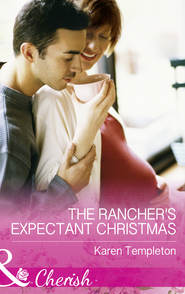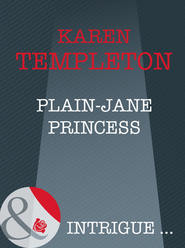По всем вопросам обращайтесь на: info@litportal.ru
(©) 2003-2025.
✖
Loose Screws
Автор
Год написания книги
2018
Настройки чтения
Размер шрифта
Высота строк
Поля
As always, Phyllis Munson’s graciousness blows me away. Chattering about the weather or something, she leads us through the thickly carpeted, traditionally furnished Colonial Revival, one befitting a Westchester congressman and his lovely anorexic wife.
Although the decor is a little bland for my taste—the neutral palette seems almost afraid to offend—there’s something about this house that’s always put me at peace the moment I set foot inside. The orderly, predictable arrangement of the furniture; the way the lush pile carpeting feels underfoot; the almost churchlike hush that caresses us as we make our way through the house to the back. What it says is, sane people live here.
Which is not to say that the house doesn’t tell Designer Ginger things about the owners they’d probably just as well the world not know. While the blandness isn’t offensive, the paint-by-number decor doesn’t reveal a whole lot about the owners’ personalities, either. There are no antiques, no quirky family heirlooms, to break the monotony of the coordinating upholstery and draperies, the relentlessly matching reproduction furniture. Oh, the quality is as good as it gets for mass production—Henredon rather than Thomasville—but it is a bit like walking into a posh hotel suite. Not that that’s necessarily a bad thing. I’ve always fantasized about staying in the Plaza, too.
But there’s something more, something I discerned within minutes of my first visit, six or so months ago: that the house’s self-conscious perfection stems in large part from the Munsons’ eagerness to cover up that neither of them hail from either old money or prize stock.
Unfortunately, it’s all too easy to spot the newly, or at least recently, arrived. They’re the ones petrified of making a mistake, the ones who constantly ask me if I’m sure this fabric or that piece of furniture is “right,” far more concerned about what their guests will think than they are their own preferences. The moneyed, the monikered, don’t give a damn. And now, as Phyllis leads us out onto the patio, her back ramrod straight, her voice carefully modulated and devoid of even a trace of a New York accent, I realize that describes my ex-almost-mother-in-law, as well. As gracious and naturally friendly as she is, her fear of being exposed as a poseur—White Plains masquerading as Scarsdale—is almost palpable.
Her insecurities do not bother me. If anything, they make her more human. More accessible. In her place, I imagine I would feel much the same way. I mean, wouldn’t you? Unfortunately, it’s Phyllis’s very insecurities about her background that brand the Munsons as phonies in my mother’s eyes.
Phyllis touches the uniformed maid lightly on the arm, whispers something to her. The woman nods, disappears through a second set of French doors leading, if I remember correctly, to the kitchen. The terrace is open-air, although deeply shaded at this time of day. I’ve never been out here before, I realize, I suppose because it was either nighttime or too cold, the other times I was here. Now I glance out across the “yard”: if there are other houses beyond the dense growth bordering the property on all three sides, they are undetectable. A pool, flanked by dozens of urns and pots overflowing with brilliantly colored annuals, shimmers below us. I somehow doubt it’s ever used.
Oh, yes, I’m well aware I’m having lunch in The Land of Make Believe. I don’t care. That doesn’t make it less peaceful, or tranquil. Besides, after two hours in my mother’s company, I’m desperate.
We sit. Concetta bustles about, setting the extra place, deftly serving the first course, fresh fruit segments in a serrated cantaloupe half, followed by deli sandwiches on fresh rye. Nothing fancy or pretentious. We make excruciatingly brittle small talk, for a while, until Phyllis unwittingly gives my mother the opening she’s been waiting for.
“It must be very comforting, Ginger, having your mother around at a time like this.”
I can sense my mother’s coiling for the attack, but unfortunately I can’t get hold of a rock quickly enough to stop her before she strikes. I try glaring, for all the good it does.
“And maybe,” Nedra says, “if you’d taught your son that social prominence is no excuse for cowardice, there wouldn’t be a ‘time like this.’”
“Nedra—”
“No, Ginger, it’s all right,” Phyllis says quietly, even though her face is now a good three shades darker than her blouse. Her left hand, braced on the table in front of me, is trembling slightly; I notice her diamond wedding set is askew, too large for her sticklike finger. I feel sorry for her—I’m at least used to my mother. She isn’t.
“Gregory has embarrassed all of us, Mrs. Petrocelli. I assure you, he wasn’t raised to be inconsiderate, or to act like a coward. The last thing I would do is insult your intelligence by trying to make excuses for him. Both his father and I are deeply ashamed of our son’s actions—” she looks at me, reaches for my hand “—and cannot begin to convey how badly we feel for your daughter. Both Bob and I truly love her, and are heartbroken at the idea of not having her as our daughter-in-law.”
Wow. I knew they liked me, but…
Wow.
My mother seems equally stunned. Which is a rare phenomenon, believe me. Although I’d like to think my glaring at her had something to do with it, as well. You know the look—if you ever want to see your grandchildren again, you will apologize? Okay, so there aren’t any grandchildren. Yet. But I believe in planning ahead.
Then I noticed something else in her expression, a slight pursing of the lips, the merest narrowing of the eyes. An expression that says, clear as day, “Bullshit.”
My face warms at the implications of that expression, even as anger incinerates the remains of sandwich and fruit in my stomach. What? I want to scream. You got a problem with believing that maybe, just maybe, they really do like me?
And while I’m sitting here, trying to get my breathing under control, I hear Nedra take a deep breath, then say, “I’m sorry. That was uncalled for. After all, I don’t suppose it’s fair—” she looks pointedly at me “—to hold the parents accountable for their children’s irrational behavior.”
I tear off a bite of roast beef sandwich and masticate for all I’m worth. Hey—there was nothing irrational about agreeing to marrying Greg. I’ve had one irrational moment in my entire life, and that took place ten years ago, in a cluttered supply closet smelling of musty mops and Lysol and Aramis. I catch on quick, as they say, and that lapse of judgment has not been, nor will it be, repeated. Obviously, considering the events of recent days, I cannot always prevent my being made a fool of, but I can at least control my contribution to my own downfall.
In the meantime, Phyllis is waving away my mother’s half-assed apology with another smile and some murmured reassurances about her understanding. But the damage has been done. True, after this afternoon, I probably will never see Phyllis Munson again. But I wouldn’t have minded leaving things on at least something of an up note, for crying out loud. But noooo, my mother has to open her big mouth and screw everything up. As usual.
This is exactly what I was afraid would happen, because it always does. It simply never occurs to Nedra that she doesn’t have to voice every thought that goes tromping through her brain. I really don’t give a damn if she hates Greg’s guts—I’m not exactly in a forgiving mood myself—but why take it out on the man’s mother?
Not to mention her own daughter?
I’m so upset, I can barely get down more than ten or twelve bites of the chocolate mousse Concetta has brought out.
Suddenly I realize Phyllis is saying, her voice tinged with sadness, “You have a wonderful daughter, Mrs. Petrocelli, which I hope you realize,” and I nearly choke on what I now realize is the last spoonful of mousse.
Fortuitously, Concetta picks that moment to appear with the extremely welcome news that Bill is waiting for us out front. My mother and I both spring up from our chairs as if goosed, although for very different reasons, thanking our hostess for the lovely lunch as we angle ourselves in the direction of the doors.
“No, please,” Phyllis says, rising to her feet. She’s around the table in an instant, her hand grasping mine. “Would you mind,” she says with a fixed smile for my mother, “letting Bill show you around the house and grounds? And you can assure him his father won’t be here, that he called and said he wouldn’t be home before dinnertime.” Then the smile zings to me. “I’d like a minute alone with Ginger.”
Four
“And then what happened?”
It’s the next afternoon. Sunday. Terrie is looking at me with huge black eyes across Shelby’s Danish contemporary dining table in the three-bedroom West End Avenue apartment Shelby’s in-laws bought for some ridiculously low ground-floor price when the building went co-op in the early eighties, then “sold” to Shelby and Mark for an even more ridiculously low price when they decided life was better in Boca. My cousin, a pair of tortoiseshell barrettes holding back her perky little blond bob, sits on the other side of the table, a forkful of Nonna’s ravioli poised exactly halfway between her plate and her mouth. Her expression is equally poleaxed.
I’m still shaking from yesterday. After Bill dropped me and all my junk off about four, then took Nedra (note to self: research feasibility of having some old gnarled Italian female relative put evil eye on own mother) on to her place, I played about a million games of FreeCell on the laptop, went to bed, got up, played another million games of FreeCell, finally deciding this definitely called for an emergency Bitch Session.
Shelby, Terrie and I have been calling these with sporadic regularity for probably twenty years, or approximately for as long as we’ve known that meaning for the word. Bitch, not years. Rules are simple: anyone can call one at any time, no low-fat food items allowed, and whoever calls the session gets the floor first. In the past ten years, I think I’ve called maybe a half dozen, Shelby none, and Terrie approximately five hundred.
And yes, I know what I said, about preferring to handle crises from the comfort of solitude, but these are extenuating circumstances. First off, it’s a known fact that too much FreeCell causes brain rot. And second, these two women are like extensions of my psyche. They’d only nag the hell out of me until I spilled my guts anyway. A favor that, in the past, I have regularly returned.
It’s definitely weird, the way we’re so close, since we’re all so different. But we go way back—Shelby and I to birth, practically, since we’re first cousins and only three months apart in age, with Terrie joining us in kindergarten. I suppose we initially glommed onto Terrie because she’d regularly beat up the other kids who’d hassle Shelby—who was eminently hassleable in elementary school—thus taking the pressure off me to do something for which I have no natural proclivity, namely, shedding blood. Especially my own. As for why Terrie, with her sass and street smarts, hitched up to a pair of white wusses…well, that’s a no brainer. We kept her supplied in Twinkies and Cokes for at least six years.
In any case, even after we grew out of needing her protection—Shelby grew into a Cute Little Thing and wormed her way in with the popular crowd, while I went on to cultivate the fine art of the Cutting Remark—we remained friends. The kind of friends who can say anything to each other, and do, which means we regularly tick each other off but we always get over it. All through adolescence, Shelby and I looked to Terrie to pave the way for us, a role Terrie was more than willing to accept. Not to mention reporting back to the troops, who’d listen in silent, envious awe. Or disgust. (Took poor Shelby six months to recover after Terrie described, in minute detail, her first French kiss. Of course, we were only twelve: at that point, we couldn’t even imagine a boy’s lips touching ours, let alone his tongue. We got over it.) In any case…Terrie got her period first, got kissed first, got felt up first, got laid first, got married first, got divorced first. Twice. Shelby bested us both only in one category—getting pregnant. Other than death or an IRS audit, I don’t suppose there are many firsts left.
So these days we content ourselves with muddling through our lives, dealing with our womanhood and all the crap attendant thereto. Shelby, of course, has been the Resident Married Lady since she was twenty-five; I have, for lo these many years, borne the standard as the singleton; and Terrie has been the switch-hitter, considering herself an expert on both sides.
The Bitch Sessions, and a passion for all things edible, unite us. But these sessions serve more of a purpose than simply outlets for venting and binging, at least for me: I know I can count on Shelby to be sweet, on Terrie to be snide, thus giving me two views of any given situation I may not be able to see myself, even as I know they both only want the best for me, as I for them. Husbands, boyfriends, jobs, may come and go, but these are my friends forever.
Friends who, at the moment, are hanging breathlessly on my every word as I relate the conversation between Phyllis and myself. I’ve already dumped on them about my mother, Greg’s phone call, and Bill’s flirting—every Bitch Session needs a little comic relief—although I decided to forgo the Nick business for now. See, Nick was the main course at a particularly hot Bitchfest some ten years ago. Dragging his sorry butt into a conversation now would only raise too many eyebrows—not to mention rampant speculation—for my comfort.
Anyway. Terrie, sporting about a thousand sleek little braids that hit her just below the collarbone, is giving me her get-on-with-it look. Not one to be rushed, I drag over the cheesecake. It’s presliced. I pick up a slice as if it’s a piece of fruit and bite into it. Much as I adore Nonna’s ravioli, today I go straight for the hard stuff.
“So,” I finally say, “after my mother leaves with Concetta, Phyllis leads me into her study. So I figure my best bet is to apologize for my mother before Phyllis can say anything.”
Shelby pops the fork out of her rosebud mouth. “What’d she say?”
“Well, she laughed, which was the last thing I expected. Then she went on about it was just a motherhood thing, you know. Nedra protecting her pup. Then she says something about knowing all about women like Nedra.”
That got a grunt from Terrie, whose beaded braids were beginning to remind me of a Gypsy fortune-teller’s plastic bead curtain. But don’t you dare tell her I said that. “There are no women like your mother.”
“That’s what I would have said. But then she said…what was it? Oh, right—” I take another bite of cheesecake “—about how when she was in college, she had to deal with all these liberal, feminist types who were convinced she was whoring herself because she did beauty pageants….”
I fade out for a moment, chewing and thinking about Phyllis’s pale blue eyes as she spoke, like a pair of small, cautious creatures peering out from behind a thicket of heavily mascara’d lashes.
Oh, they made a lot of noise, and raised a lot of hell, all those women whose families could afford to pay for their education, about women’s rights and how people like me were setting the women’s movement back by at least three centuries. None of them ever bothered asking me what I really thought, or bothered to consider that perhaps there were worse things in the world than a woman using her looks to get ahead.
I’d caught a whiff of desperation then, which I’d never noticed before, in her voice, her expression, the way her makeup was a little too carefully applied….
Terrie smacks my arm, making me jump. “Hey. Back to earth.”











